Speaker Biographies & Programme
Akram Alashqar
Akram Alashqar is a Palestinian filmmaker and educator hailing from Tulkarm, Palestine. For over ten years, he has served as a film and media faculty member at several Palestinian universities.
Alashqar's films include First Picture (2006), Red, Dead, and Med. (2006), Paper War (2007), and he produced Five Boys and a Wheel (2016). His first documentary film, First Picture (2006), tells the story of a Palestinian child from the Tulkarm Camp for Palestinian refugees. This child was born in one of the Israeli prisons. After spending more than two and a half years in prison, he was released independently from his mother, who remains imprisoned by the Israeli authorities. The film follows the child's adventures outside of prison under the protection of his family and with the companionship of his mother's freed friends from prison, exploring how his experience in prison shapes those adventures. Red, Dead, and Med. (2006) delves into the lives of Palestinian children of the West Bank, fixated on a sea they've never seen, despite Palestine being located on three seas from which the film's title is derived.
As a project manager with the Royal Film Commission in Jordan, he played a pivotal role in establishing three cinema centers, including two innovative cinema buses. His passion for film and community engagement inspired him to develop specialized filmmaking curricula and facilitate numerous workshops for children and youth, fostering a love for storytelling and the arts in the next generation.
Alashqar is currently pursuing a PhD at the University of Glasgow, Alashqar's research focuses on the aesthetics and significance of sound tracks in Palestinian revolution cinema.
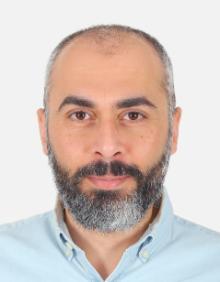
Aleks Palanac
Aleks Palanac is Head of Sanctuary at the University of Leicester. She has been heavily involved in developing University of Sanctuary work at her institution and across the UK HE sector, particularly by widening participation to HE for refugee-background students through trauma-informed English language provision. Her recent work has included an article entitled ‘Towards a Trauma-Informed ELT Pedagogy for Refugees’, an inter-disciplinary British Council ELTRA research project entitled Beyond Resilience: Facilitating Learning and Well-being in the Refugee Language Classroom and, along with Deirdre McKenna from University of Leeds, developing the RefugEAP Programme for refugee-background students from across the UK to access trauma-informed EAP provision to aid them in their efforts to access a UK university. She convenes the RefugEAP Network, and was previously the convenor of BALEAP's EAP for Social Justice SIG. In recent months, she has been exploring ways in which the UK HE sector can best provide support to Gazan students, academics and universities.

Celia Partridge
Celia joined UUKi in 2017 and leads on UUKi’s external grants and contracts, as well as events, communications, engagement and insight. She previously worked at the Royal College of Music and the UK Council for International Student Affairs (UKCISA), where she led on the Prime Minister’s Initiative for International Education, launching projects that enhanced the international student experience. Her private sector experience includes managing Barclays UK-wide flagship community investment programme on financial capability for young people. As a consultant, she has also worked on strategic reviews, programme development and sustainability strategy for a range of organisations across the private and not-for-profit sectors.
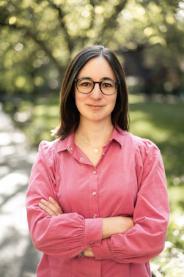
Dr Giovanna Fassetta
Giovanna Fassetta is a Senior Lecturer in Social Inclusion in the School of Education at the University of Glasgow. She co-led the LINEs project and is currently co-leading the LINEs4Palestine and Education in Conflict projects. Giovanna's teaching and research focuses on inclusion of children and young people from migrant and refugee backgrounds, with a specific view on the role of languages and culture in educational settings. Most of the project Giovanna led over the past years (e.g. Welcoming Languages; CUSP Network Plus Development Award; The Impact on Language) are international collaborations with partners in the Gaza Strip. Giovanna teaching and supervision focus on inclusive practices in educational settings, with a particular emphasis on the role that language and identity play in this.
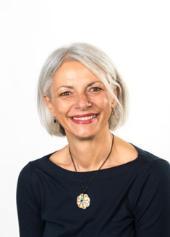
Harish Lokhun
Harish is the Head of Education for the British Council in Scotland and brings together over 10 years’ experience of working in the international education space. Having initially started out as a British Council English Language Assistant in China, Harish has worked for various international organisations, including the Association of Commonwealth Universities (ACU) deliveringthe UK government’s Chevening Scholarships programme and British Council’s work in English and Exams under IELTS. More recently, Harish has worked at the University of Edinburgh in its international office leading recruitment and partnership activity in South Asia and most recently Welsh Government’s Education programme – Global Wales –delivering partnerships for Welsh higher and further education institutions in India.
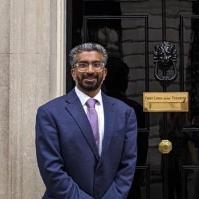
Dr Mona Jebril
Mona Jebril is an interdisciplinary social scientists focused on Gaza and conflict-affected areas in the Middle East. Currently, Mona is a Research Associate at Centre for Business Research at Judge Business School, and Bye-Fellow at Queens’ College- University of Cambridge. She is the founder and director of A Life Lived in Conflict (ALLIC) podcast, an interdisciplinary podcast focused on war and conflict-zones, from a variety of disciplines and backgrounds. Mona is a Palestinian who lived in the Gaza Strip (Occupied Palestinian Territories) for more than 22 years. After completing her B.A in English Language and Literature from Al Azhar University in Gaza, on the honour list. Mona worked as a teacher at Gaza Public Schools (Basic, Preparatory, and Secondary levels), and a trainer of novice teachers. She then pursued her MSc in Higher Education at Oxford University. Mona graduated with distinction and won Said Foundation Prize for Academic and Personal Achievement. She returned to Gaza to work as a lecturer at two universities there. During this period, she jointly founded two centres and a scholarship programme at Gaza’s universities. After five years, Mona won Gates Cambridge scholarship to study for a PhD in Cambridge, as their first scholar ever from Gaza, and the second from Palestine. She completed her PhD studies and passed her viva voce with no corrections. Both her MSc and PhD research were pioneer studies that focused on higher education in the Gaza/ Palestinian context. During her PhD, Mona worked as a research assistant on a British Council and Cara funded project which mapped higher education in Syria pre and post 2011. She also advised the Dominic Simpson Trust on their scholarship programme for Palestine. After graduation, Mona joined Cambridge Judge Business School, working at the Centre for Business Research on the UKRI-GCRF project, “Research for Health in Conflict (R4HC-MENA): Developing capability, partnerships and research in the Middle East and North Africa”. She led a study on the political economy of health in the Gaza Strip. She was also a member of the Political Economy of Health workstream which investigated this topic, and how it connects across borders, in relation to Jordan, Lebanon, Turkey and the Occupied Palestinian Territories. Mona then worked as a Research Associate on “Close the Gap project: Fair Admissions in Postgraduate Research”, a joint project between the Universities of Oxford and Cambridge. Mona collaborates with diverse professionals in academic, policy, and technical fields. She uses creative ways for disseminating her research, such as poetry, films, animations, photography, theatre and others. Mona’s research has been prominently featured by several academic and media outlets.
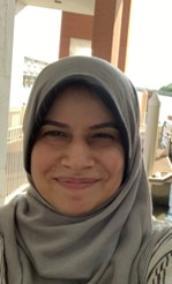
Professor Dame Nicola Dandridge DBE
Professor Dame Nicola Dandridge is chair of the Council for At Risk Academics, and a member of Court of the University of Glasgow.
Nicola works as a Professor of Practice in Higher Education Policy at the University of Bristol, where she is researching issues relating to the experience of students, regulation and governance. She is also a Senior Fellow of the M-RCBG Centre at Harvard Kennedy School.
Previously she was chief executive of the Office for Students, the regulator for higher education in England. Before that she led Universities UK, the representative body for the UK’s universities, and first joined the higher education sector in 2006 as chief executive of the Equality Challenge Unit, established to promote equality and diversity for staff and students in the higher education sector.
Nicola originally qualified as a solicitor in both England and Scotland, specialising in industrial relations and equality law.
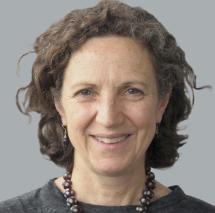
Dr Savo Heleta
Dr Savo Heleta is a Bosnian researcher with more than ten years’ experience in South African higher education. His research focuses on decolonisation of knowledge, higher education internationalisation, international research collaboration, analysis of foreign aid flows to higher education, and rebuilding higher education after violent conflict. Survivor of the Bosnian war, he is the author of ‘Not My Turn to Die: Memoirs of a Broken Childhood in Bosnia’ (2008). More info at SavoWrites.com
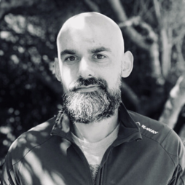
Professor Sultan Barakat
Sultan Barakat is a Professor at the College of Public Policy at Hamad Bin Khalifa University. He is a renowned scholar in the study of war-torn societies and their recovery. He has supervised over 20 PhDs in politics and post-war recovery and graduated a generation of MA peacebuilders and reconstruction specialists. Professor Barakat founded and directed the Center for Conflict and Humanitarian Studies at the Doha Institute from 2016 to 2022 and previously led the post-war reconstruction unit at the University of York from 1993 to 2019, where he is also an Honorary Professor. Barakat is a Senior Fellow of the Geneva Center of Humanitarian Studies at the University of Geneva and the Royal United Services Institute (RUSI). He has published extensively, with recent books including Russia’s Approach to Post-Conflict Reconstruction and Shelter and Reconstruction after War and Disaster, both released in 2023. With over 30 years of experience, Barakat has worked on conflict management, humanitarian response, and post-conflict recovery, influencing global practices through his publications and advisory roles with organizations like the UN, World Bank, and EU. Barakat has led evaluations and peace initiatives in various conflict zones, demonstrating his commitment to stability and resilience. His involvement in mediation efforts in Yemen, Syria, and Afghanistan highlights his contributions to peacebuilding. Barakat continues to shape discourse in conflict resolution, earning recognition as a leading authority in the field.
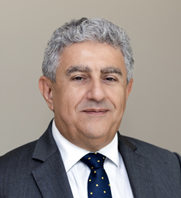
Zeid Al-Bayaty
Zeid Al-Bayaty is an experienced professional specialising in international higher education and international development. Born in Baghdad, Iraq, Zeid grew up in Prague, Czech Republic, and Gothenburg, Sweden. He holds a Master's degree in Political Science, International Relations, and Middle Eastern Relations from Gothenburg University.
After gaining experience through short-term projects with Human Rights Watch and the London School of Economics (LSE), Zeid joined Cara in 2012 as Iraq Programme Officer. Over the years, he took on increasing responsibilities, ultimately becoming Deputy Director and Fellowship Programme Manager in March 2018.
In the past three years, Zeid has played a pivotal role in expanding Cara's activities and the Fellowship Programme, particularly in response to the crises in Afghanistan, Ukraine, Sudan, and Gaza. His leadership has contributed to Cara's growth into one of the world's leading higher education charities. Currently, Zeid leads a team of 14 professionals, supporting hundreds of at-risk academics and their families, including approximately 160 Fellows currently placed in the UK.
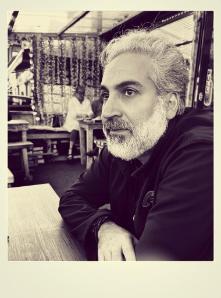
Conference Programme
Glasgow University Union Dining Hall, 32 University Avenue, Glasgow G12 8LX
Wednesday 11 December 2024
09:00-09:45: Registration
09:45-10:00: Welcome
- Professor Sir Anton Muscatelli, Principal and Vice-Chancellor, University of Glasgow
10:00-10:40: Session One - Opening Keynote, Rebuilding Higher Education In Gaza: Lessons From Two Decades Of Donor Funding
Chair: Professor Rachel Sandison, Deputy Vice Chancellor (External Engagement), University of Glasgow
- Professor Sultan Barakat, Professor in Public Policy, Qatar Foundation's Hamad Bin Khalifa University
- Dr Savo Heleta, Bosnian Researcher and Author
This keynote will discuss the findings from a research project that systematically examined the volumes and types of foreign aid to higher education in Palestine by donors reporting official development assistance (ODA) to the Organisation for Economic Co-operation and Development during 2002-2022. Aid directed to local higher education has been uneven, fragmented and sporadic, undermining the efforts to strengthen and/or rebuild local institutions.
The session will offer insights into potential funding sources for the reconstruction of higher education in Gaza.
Format: Keynote and audience Q&A
10:40-11:00: Break
11:00-12:00: Session 2: Supporting Universities through Geopolitical and Humanitarian Crisis: Reflections
Chair: Alan MacKay, Deputy Vice Principal (International), University of Edinburgh
This panel discussion will examine how the UK Higher Education Sector, government and partner organisations can support universities facing disruption due to humanitarian and geopolitical issues, ensuring not only their short-term survival but also their sustainability.
Drawing from lessons learnt from recent conflicts and humanitarian crisis, the panel will consider how UK universities can support impacted institutions, taking into considerations areas such as physical and technological infrastructure, learning and teaching and research.
Confirmed Speakers:
- Humza Yousaf, Scottish National Party, MSP for Glasgow Pollok
- Harish Lokhun, Head of Education, British Council Scotland
- Celia Partridge, Deputy Director, Partnerships & External Affairs, Universities UK International
- Dr Ahmed Abu Shaban, Associate Professor and Dean, Al Azhar University, and member of the Emergency Committee of Universities in Gaza
12:00-13:00: Session 3: Supporting Displaced Students and Academics
Chair: Professor Saleem Haj-Yahia, Visiting Professor, School of Cardiovascular & Metabolic Health, University of Glasgow; Dean, College of Medicine, Hebron University
One of the key issues facing universities disrupted by geopolitical and humanitarian crisis is the ability to continue to support their academics and current students and prevent the loss of a generation of talent. This panel discussion will explore how partner universities can support disrupted institutions while also avoiding long-term “brain-drain.”
Format: Speakers present 5-7min response to the session topic, followed by chaired discussion and Q&A.
Confirmed Speakers:
- Mr Zeid Albayaty, Council for At-Risk Academics, Deputy Director & Fellowship Programme Manager
- Dame Nicola Dandridge DBE, Chair, Council for At-Risk Academics (virtual)
- Dr Leonie Ansems de Vries, Director of Sanctuary Programme, King’s College London
- Ms Aleks Palanac, Head of Sanctuary at Leicester, University of Leicester
13:00-13:45 Lunch
13:45-14:30: Session 4: Restoration Through Collaboration: Bilateral Partnerships and Networks
Chair: Professor Deborah Longworth, Pro-Vice-Chancellor Education, University of Birmingham
This session will explore the influence of international networks and partnerships, including the importance of global collaboration in supporting universities through geopolitical and humanitarian crisis. Together, panellists and attendees will consider how to effectively develop long-term, equitable strategic partnerships, which are reciprocally beneficial with institutions facing significant disruption or reconstruction.
Format: Panel discussion with Chair
Confirmed Speakers:
- Professor Sultan Barakat, Professor in Public Policy, Qatar Foundation's Hamad Bin Khalifa University
- Dr Mona Jebril, Research Associate at Centre for Business Research, and Bye-Fellow at Queens' College- University of Cambridge
- Akram Alashqar, HESPAL Scholar, University of Glasgow
- Dr Maria Grazia Imperiale, Lecturer in Adult Education (School of Education) and Dr Giovanna Fassetta, Senior Lecturer in Social Inclusion (School of Education), Lines4Palestine and Education in Conflict project Leads.
14:30-15:45 Workshop: Supporting Post-conflict Reconstruction of Higher Education in Gaza
Hosts:
- Professor Allison Phipps, Professor of Languages and Intercultural Studies, UNESCO Chair in Refugee Integration through Languages and the Arts
- Omar Shweiki, Director, Fobzu
Conference delegates will be asked to reflect on the discussions that have taken place over the course of the conference and consider how the UK Higher Education Sector and partner organisations can support and plan for the post-conflict reconstruction of higher education in Gaza. Working in groups, delegates will be asked to consider a series of questions focusing on research, learning and teaching as well as technological and physical infrastructure and focusing on the role that UK higher education institutions and others can play in supporting Palestinians in the task of developing a roadmap to recovery post-conflict.
Format: Workshop
Feedback from the workshop session will be considered in an open forum discussion.
15:45-16:00 Reflections and Closing Remarks
- Professor Rachel Sandison, Deputy Vice Chancellor (External Engagement), University of Glasgow
- Professor Sultan Barakat, Professor in Public Policy, Qatar Foundation's Hamad Bin Khalifa University

